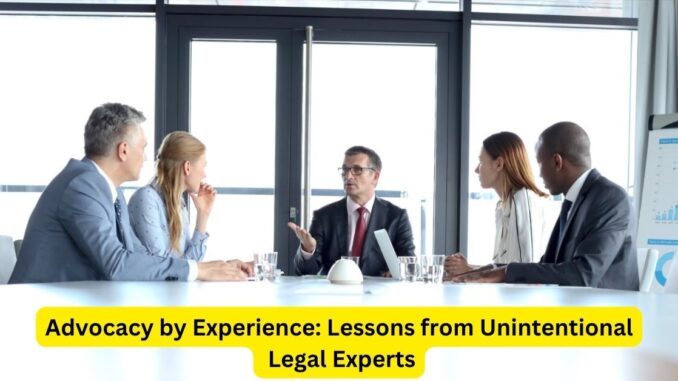
In the realm of law, expertise is often associated with formal education and years of deliberate practice. However, there is a remarkable group of individuals who have emerged as unintentional legal experts, advocating passionately and effectively due to their personal experiences. Their stories reveal valuable lessons about the power of lived experience in driving change within the legal system.
Take Lisa, a mother who found herself entangled in the complexities of medical malpractice after her child suffered a grave misdiagnosis. Fueled by a determination to prevent similar tragedies, Lisa dived headfirst into medical and legal research. Over time, her journey transformed her into a fierce advocate, sharing her story to raise awareness about patient rights and pushing for reforms in the healthcare sector. Lisa’s firsthand experience not only lends credibility to her cause but also fuels her passion to hold institutions accountable.
Then there’s David, a formerly incarcerated individual who experienced the flaws of the criminal justice system firsthand. Upon his release, he channeled his energy into understanding the intricacies of the legal system that had impacted his life. Through his advocacy work, he highlights issues like wrongful convictions, harsh sentencing, and reentry challenges. David’s insights cut through statistics, giving a human face to the consequences of legal policies and sparking conversations about reform.
Unintentional legal experts often possess an unmatched authenticity that resonates with policymakers, lawmakers, and the public. Their stories and perspectives humanize legal issues, moving them beyond theoretical debates. Sarah, a survivor of domestic violence, transformed her pain into purpose by advocating for stronger legal protections for survivors. Her emotional connection to the cause galvanizes her advocacy, demonstrating how personal narratives can drive systemic change.
These individuals teach us that advocacy rooted in lived experiences can fill gaps that formal education might overlook. Their intimate understanding of the challenges they face equips them with a unique ability to pinpoint the weaknesses of the system. This in-depth perspective can be a powerful tool for advocating for policy changes, pushing boundaries, and demanding accountability.
Moreover, unintentional legal experts exemplify the notion that knowledge is democratized through shared experiences. They often work collaboratively with legal professionals, bridging the gap between theory and reality. Their input enriches legal discussions with nuances that textbooks can’t capture, prompting a more holistic approach to addressing legal issues.
Their stories also underscore the importance of listening. Legal professionals and policymakers can learn invaluable lessons from these unintentional experts. By lending an ear to their experiences, they can identify systemic shortcomings and make informed decisions that resonate with those directly affected by legal matters.
In a world where legal discourse can become detached from human experiences, the rise of unintentional legal experts offers a refreshing perspective. Their advocacy is a testament to the transformative power of personal stories in shaping legal landscapes. As we navigate complex legal challenges, their lessons remind us to recognize, embrace, and amplify the voices of those whose experiences serve as beacons of change.
Leave a Reply